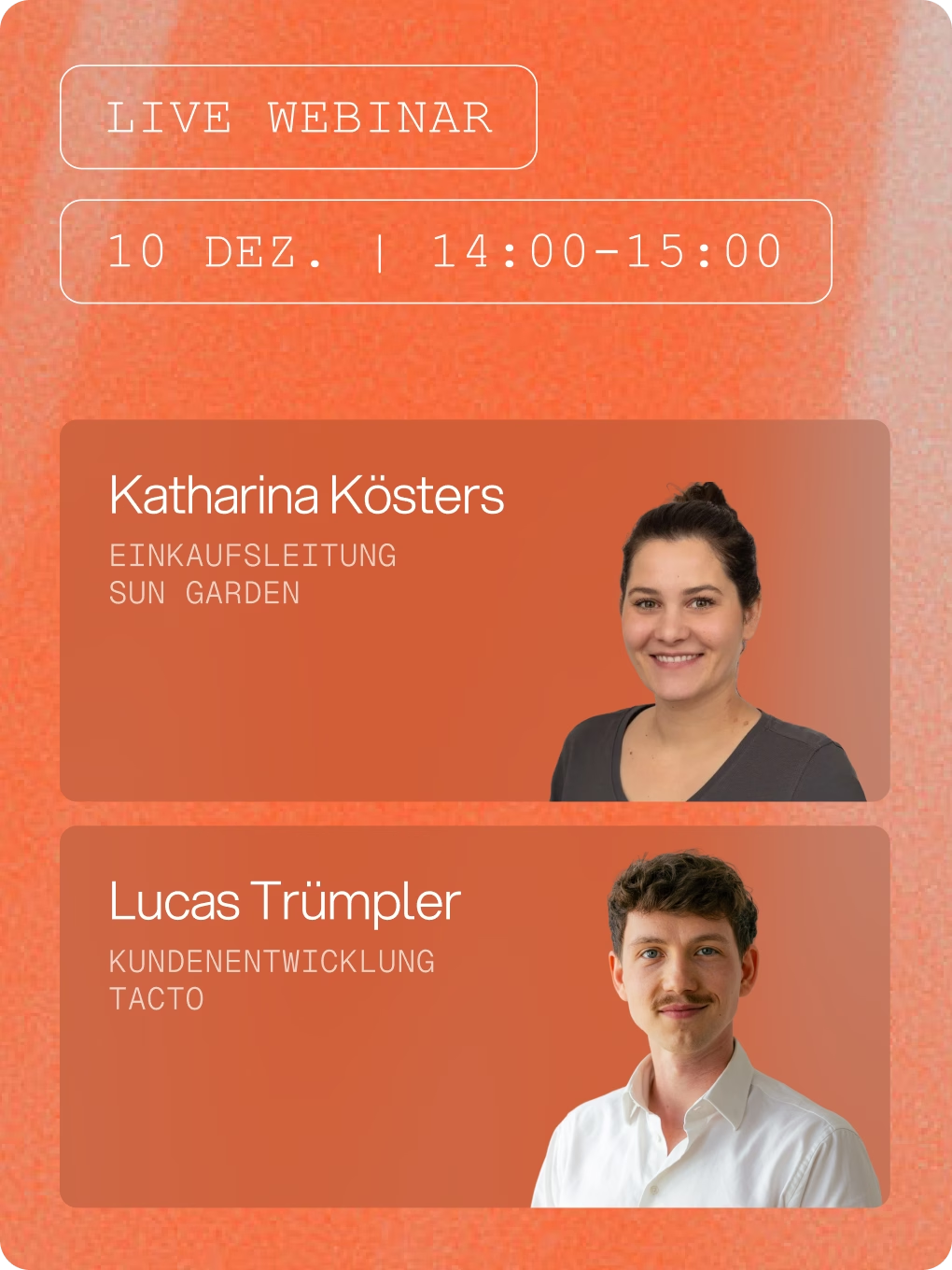Procurement Glossary
Bonus agreement: definition, application and strategic importance in Procurement
November 19, 2025
A bonus agreement is an important instrument in strategic Procurement that creates additional financial incentives for suppliers. It defines specific performance targets and rewards their overfulfillment with monetary benefits. Find out below what bonus agreements are, how they are structured and what strategic advantages they offer your company.
Key Facts
- Bonus agreements create financial incentives for suppliers who exceed defined performance targets
- Typical bonus criteria include quality improvements, cost savings and on-time delivery
- The agreements require measurable KPIs and clear calculation bases
- Bonus systems promote long-term partnerships and continuous improvement
- Legal protection through precise wording of the bonus conditions is essential
Contents
Definition: Bonus agreement
Bonus agreements are contractual arrangements between buyers and suppliers that provide for additional remuneration for achieving or exceeding specific performance targets.
Basic elements of a bonus agreement
A structured bonus agreement comprises several key components:
- Clearly defined performance indicators and target values
- Measurable criteria for bonus calculation
- Time periods for performance evaluation
- Payment modalities and dates
Bonus agreement vs. malus system
In contrast to malus systems, which provide for deductions if targets are not met, bonus agreements reward positive performance. This positive incentive structure encourages suppliers' motivation and willingness to negotiate.
Importance of bonus agreements in Procurement
Modern procurement strategies use bonus agreements to optimize supplier relationships. They support the transformation from transactional to strategic partnerships and enable performance-oriented contract design.
Methods and procedures
The successful implementation of bonus agreements requires systematic approaches and proven methods for structuring and implementation.
Development of bonus criteria
Suitable bonus criteria are selected on the basis of strategic corporate objectives. Frequently used criteria include quality improvements, cost savings, innovation contributions and sustainability targets. A benchmarking analysis helps to define realistic target values.
Structuring the bonus calculation
Bonus calculations can be linear, progressive or gradual. Progressive models reward disproportionately high performance, while graduated systems define clear milestones:
- Linear bonus models: uniform increase per performance unit
- Progressive systems: Disproportionate rewards for top performance
- Step models: fixed bonus amounts when defined thresholds are reached
Integration into contract structures
Bonus agreements are typically integrated into framework agreements or as an annex to existing supply contracts. Legal protection is provided through precise formulation of the bonus conditions and audit rights to review performance.

Tacto Intelligence
Combines deep procurement knowledge with the most powerful AI agents for strong Procurement.
Key figures for managing bonus agreements
Effective bonus agreements require measurable key figures to evaluate performance and manage supplier relationships.
Performance indicators for bonus evaluation
Key KPIs include quality indicators, on-time delivery and cost savings. The selection is based on strategic corporate goals and supplier capabilities. Measurable indicators ensure objective bonus calculations.
Financial performance indicators
The monitoring of bonus costs in relation to the purchasing volume shows the efficiency of the agreements:
- Bonus ratio: ratio of bonus payments to total purchase volume
- ROI of bonus agreements: Benefits vs. bonus costs
- Degree of target achievement: percentage of bonus criteria achieved
Monitoring and reporting
Regular performance reports and dashboard systems enable continuous monitoring of bonus agreements. Service level monitoring and automated notifications in the event of target deviations support proactive management.
Risks, dependencies and countermeasures
Bonus agreements entail specific risks that can be minimized through appropriate measures in order to achieve the desired effects.
Manipulation risks and control mechanisms
Suppliers could try to manipulate bonus criteria or pursue short-term optimizations at the expense of long-term quality. Robust control systems and audit rights are essential to minimize risk.
Legal uncertainties
Unclear wording in bonus agreements can lead to disputes. A precise definition of the calculation basis and clear liability regulations significantly reduce legal risks:
- Define clear measurement methods and data sources
- Establish dispute resolution mechanisms
- Define documentation obligations
Budget risks and cost control
Unexpectedly high bonus payments can put a strain on budgets. Upper limit regulations and staggered bonus systems limit financial risks. A regular review of contract terms enables timely adjustments.
Practical example
A car manufacturer implements a bonus agreement with its main supplier of electronic components. The agreement provides for a 2% bonus on the annual volume if the error rate falls below 50 ppm and 95% on-time delivery is achieved at the same time. In addition, an innovation bonus of 10,000 euros is granted for each improvement idea implemented. After one year, the supplier achieves a defect rate of 30 ppm and 97% on-time delivery, as a result of which it receives the full performance bonus and three innovation bonuses.
- Clear target definition with measurable KPIs
- Multidimensional bonus criteria for holistic performance improvement
- Regular performance monitoring and transparent billing
Trends & developments around bonus agreements
The structure of bonus agreements is subject to continuous change, which is characterized by technological developments and changing market requirements.
Digitization of bonus administration
Modern digital contract management systems automate the recording and evaluation of bonus criteria. AI-based analyses enable more precise performance evaluations and significantly reduce administrative effort.
Sustainability-oriented bonus systems
Companies are increasingly integrating ESG criteria into their bonus agreements. Suppliers are rewarded for contributions to the circular economy, CO2 reduction and social responsibility. This development reflects the growing importance of sustainable procurement.
Dynamic adjustment mechanisms
Modern bonus agreements include flexible adjustment clauses that respond to market changes. Price revision clauses and automatic target adjustments ensure the long-term relevance of the agreements, even in volatile markets.
Conclusion
Bonus agreements are strategic instruments for optimizing supplier relationships and improving performance. They create win-win situations through performance-oriented incentive systems and promote long-term partnerships. Success depends on clear target definitions, measurable criteria and continuous monitoring. Modern digital solutions support the efficient administration and evaluation of bonus agreements.
FAQ
What is the difference between bonus and discount agreements?
Bonus agreements reward performance that exceeds agreed standards, while discounts are usually granted based on volume or as basic conditions. Bonuses are performance-based and require active target achievement, while rebates are often automatic if certain conditions are met.
How are bonus payments treated for tax purposes?
Bonus payments are considered business expenses and are tax-deductible. For suppliers, they represent operating income. The exact tax treatment depends on the specific structure and the respective tax laws. Tax advice is recommended.
Which bonus criteria are most suitable?
Effective bonus criteria are measurable, can be influenced and are strategically relevant. Quality indicators, adherence to delivery dates, cost savings and contributions to innovation have proven their worth. The selection should be based on corporate goals and be realistically achievable for suppliers.
How often should bonus agreements be reviewed?
An annual review is recommended in order to take market changes and performance developments into account. In the case of volatile markets or new supplier relationships, semi-annual adjustments can be useful. Continuous monitoring enables agreements to be optimized in a timely manner.



.avif)

.png)
.png)


.png)




